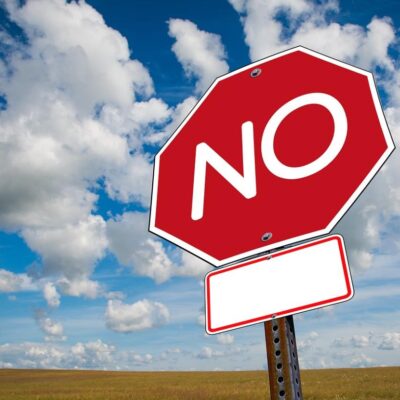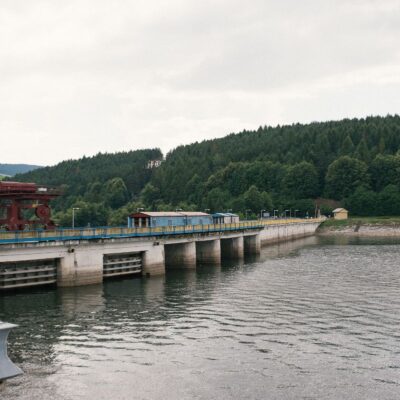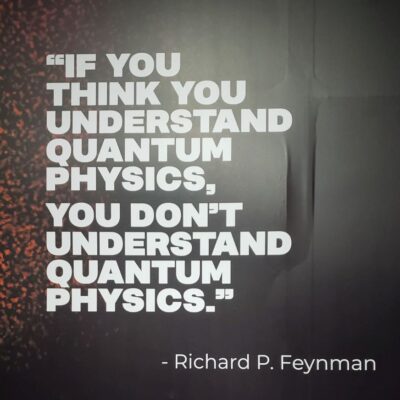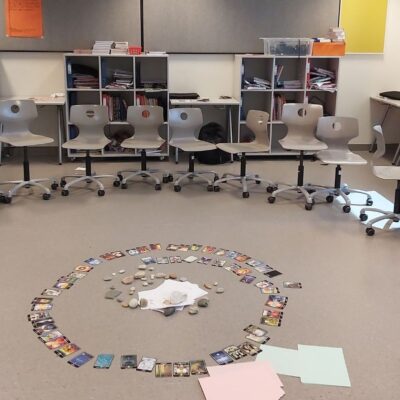
Recently, I worked with a group of students employed as Mentors for students entering their university. They are part of a program designed to build the university community and to help new students integrate into student life and their studies. The program asks a lot of these young people, both in terms of their managerial and leadership capacity. Each is responsible for a group of up to 20 incoming students. We had our meeting just as they completed the most intense part of their work. They were now preparing to move into a different phase of the project.
It Starts with Noticing Your Experiences
During the session, I invited them to identify any milestones they’ve experienced over the past few months. They wrote each one individually on a piece of paper. We then put them out on the floor in chronological order. This formed a storyline from the moment they were hired to the present.
When everything was on the floor, we looked at it with curiosity. I asked: “What do you notice about what you have experienced so far?”
As they looked they were able to take a step back and see their experiences as stepping stones illustrating the richness of their experience. One person reflected on how the same learning milestone occurred for different people at completely different times. Another noted with pride how much she can see her individual development and how it fits into the group’s development. Someone else saw that there were peak moments and moments where things seemed restful.
As we continued to explore one of the mentors remarked on how useful this short exercise was. It helped him to orient himself in the whirlwind of the busy-ness of his study and work. Just by doing this he was able to identify and re-connect with his goals for being a mentor. It gave him a sense of pride and of relaxation. He could see the connections between his experiences and what he was learning.
The Difference Between Reflection and Critique
I was struck that virtually everyone in the group agreed that they never ‘reflect’ and also that they found the exercise really valuable. Many said they were afraid to look back because they can’t change the past.
In this, they are like many other people I work with who mistake reflection — looking back at where you have been to learn from it — with critique — judging your past experience against an ideal to see where you fall short or where you reach the mark.
And like these students, literally everyone with whom I do this short exercise, of taking a step back and simply noticing what has happened, important insights and realisations and a sense of clarity of what has been accomplished takes place. This clear picture helps to determine wise movement to the future. A movement that is less hindered by self-criticism and blame or by fantasy and grandiose ideas. Sometimes it comes with a great sigh of relief to notice how something that was hard has been overcome, or joy to see that things they set out to do have actually happened, or acknowledgment of how difficult something was, now that it is in the past.
Living as fast as we do in our current society, reflection like this is vital. Disorientation runs rampant as we keep speeding up and this disorientation creates confusion and poor decisions.
Knowing Where You’re Going by Knowing Where You’ve Been
I have been fascinated with the practice of “dead reckoning”. This is a form of navigation — on sea and land — done without instruments. Basically, you set a goal of where to go, and then only know where you are going by knowing where you have been. You know the “track” back to the start. You know your speed of movement and thus see where you are on your journey. Being able to navigate in this way seems vital at this time when (work) environment shift so quickly and the future often seems unclear. There are no maps these days for how we develop in organizations. Developing this reflective ‘dead reckoning skill’ can help us to chart out a good course. It can help to know how to profit from what we are learning on it.
An Exercise for Year-End Reflection
As this year comes to an end it is a great time to do some reflection work for yourself, to see what this year has brought you as you prepare for what is to come. I encourage you to try this simple reflection inspired by the Storyline that we work within the Genuine Contact™ Program.
In this slightly different use of the Storyline tool, I change a few words:
- The Storyline of the Organization becomes the Storyline of my year
- The Circle of Open Space becomes NOW
- The Storyline of what is expected after the meeting become is the Storyline of what you expect in this coming year.

- Take some time and review what you have done this past year. Maybe you have an agenda you can use to look into, or a diary, or maybe you just review in your mind.
- Note those things that feel important to you, those things you would consider “milestones” and write each one down on its own piece of paper.
- Place this on the left-hand side of the line as the Story of the past year.
- Take a look and see what you notice about your story? What learning has occurred? Were there any developments? What high and low-points? Are there surprises? What insights?
- If you feel inclined you can look from there to the future and wonder ware you starting to see about your next steps into this coming year.
I wish you great reflection and navigation into the new year.









Leave a Reply